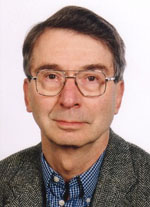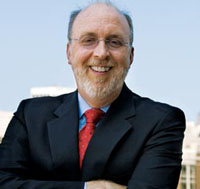Is Hachette Being Hoisted by Its Own DRM Petard?
 Rebecca Tushnet points to this column by Cory Doctorow arguing that Hachette is being held hostage in its fight with Amazon over e-book versions of its books because of its “single-minded insistence on DRM”: “It’s likely that every Hachette ebook ever sold has been locked with some company’s proprietary DRM, and therein lies the rub.” Doctorow argues that because of the DMCA Hachette can no longer get access, or authorize others to get access to, its own books:
Rebecca Tushnet points to this column by Cory Doctorow arguing that Hachette is being held hostage in its fight with Amazon over e-book versions of its books because of its “single-minded insistence on DRM”: “It’s likely that every Hachette ebook ever sold has been locked with some company’s proprietary DRM, and therein lies the rub.” Doctorow argues that because of the DMCA Hachette can no longer get access, or authorize others to get access to, its own books:
Under US law (the 1998 Digital Millennium Copyright Act) and its global counterparts (such as the EUCD), only the company that put the DRM on a copyrighted work can remove it. Although you can learn how to remove Amazon’s DRM with literally a single, three-word search, it is nevertheless illegal to do so, unless you’re Amazon. So while it’s technical child’s play to release a Hachette app that converts your Kindle library to work with Apple’s Ibooks or Google’s Play Store, such a move is illegal.
It is an own-goal masterstroke.
Everyone loves irony, but I can’t figure out how to make Doctorow’s argument work. First, I can’t figure out what the anticircumvention problem would be. Second, I can’t figure out why Hachette wouldn’t be able to provide other distributors with e-book versions of its books.

 I was saddened to read of the recent death of prominent historian Gabriel Kolko. He suffered from an incurable neurological disease and relocated to the Netherlands. He then took advantage of that nation’s legal euthanasia option and died in Amsterdam on May 19.
I was saddened to read of the recent death of prominent historian Gabriel Kolko. He suffered from an incurable neurological disease and relocated to the Netherlands. He then took advantage of that nation’s legal euthanasia option and died in Amsterdam on May 19. John Pauly came to Marquette University in 2006 to lead the Diederich College of Communication, and we were deans for two years together — or at least next door to one another, as he was in Johnston Hall and I immediately east in the “old building,” as we in the Law School now call Sensenbrenner Hall. Then Dean Pauly became Provost Pauly in 2008, and so for five years I reported to him, although that phrasing does not convey all the support that Provost Pauly gave to the Law School and to me as dean. Throughout these years and his administrative positions, I admired the way John remained engaged in his discipline — journalism — in a way also integrated with the larger work of the Marquette University faculty. I remain particularly drawn to his substantial essay,
John Pauly came to Marquette University in 2006 to lead the Diederich College of Communication, and we were deans for two years together — or at least next door to one another, as he was in Johnston Hall and I immediately east in the “old building,” as we in the Law School now call Sensenbrenner Hall. Then Dean Pauly became Provost Pauly in 2008, and so for five years I reported to him, although that phrasing does not convey all the support that Provost Pauly gave to the Law School and to me as dean. Throughout these years and his administrative positions, I admired the way John remained engaged in his discipline — journalism — in a way also integrated with the larger work of the Marquette University faculty. I remain particularly drawn to his substantial essay,